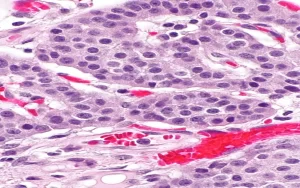One of the important pre-pregnancy measures is weight loss, weight control and staying within a healthy weight range, which results in the health of the mother and fetus. Achieving a suitable and healthy weight before pregnancy is important in increasing the chances of pregnancy and reducing the risk of its complications. Even obese women who have regular periods take longer to conceive, and obesity can increase the chance of ectopic pregnancies. The probability of emergency caesarean section is higher in overweight mothers, even doctors have to use natural childbirth aids in some people. Pre-pregnancy weight directly affects the baby’s birth weight.

Excess weight is one of the health problems and a risk factor in pregnancy for many diseases. Absence of ovulation, sterility, infertility, uterine and breast cancers are more common in obese women. It is very dangerous for obese people to get diseases during pregnancy, including gestational diabetes, high blood pressure, and pregnancy poisoning, and it is also associated with a higher prevalence of uterine infections and postpartum bleeding. Obesity can reduce the chance of normal ovulation and also affect the outcome of in vitro fertilization (IVF).
A very effective method for people who are overweight and suffering from diseases caused by obesity, such as type 2 diabetes, knee pain, high blood pressure, etc., is bariatric surgery, including gastrostomy and gastric bypass, which must be performed by a bariatric specialist and surgeon. Obesity and weight loss should be done. Call Dr.zandi now
Complications of obesity in pregnancy
- Miscarriage risk: Obese women are more at risk of miscarriage compared to normal weight women.
- Increased risk of stillbirth or birth defects: In babies whose mothers are obese, there is a risk of birth defects such as heart defects and neural tube defects.
- Problems of diagnostic tests: Another risk of obesity and excess fat during pregnancy is the occurrence of problems with the child’s anatomy during the ultrasound examination. In such conditions, checking the heart rate during childbirth may also be more difficult.
- Pregnancy failure
- Gestational Diabetes
- A pregnancy complication associated with high blood pressure and signs of damage to other organ systems, often the kidneys (preeclampsia)
- Cardiac dysfunction
- sleep apnea
- Difficult vaginal delivery
- Increasing the probability of a baby being born through cesarean surgery
Dos and don’ts of weight loss before pregnancy
Pregnant women should not use restrictive diets to lose weight. A very low-calorie diet that depletes nutrient reserves in the body, for example, diets in which the consumption of bread and rice, vegetables and fruits, milk, dairy products, meat and eggs is excluded or prohibited is not suitable. To lose weight, you should first consult a doctor. If approved by the doctor, the patient can walk for one hour a day on a smooth surface regularly.
Benefits of losing weight before pregnancy
Mothers who have a normal weight experience an easier pregnancy than mothers who are overweight or obese. Because they don’t have to worry about getting some diseases, also the extra weight caused to them because of the baby causes them less trouble. These people experience an easier delivery than obese people, and their baby will be in a more normal state in terms of height and weight.
read more : all about weight loss surgery
Ways to lose weight before pregnancy
- Reducing fat consumption: avoiding the consumption of fried foods, separating the fat around meat and chicken skin, using seasonings such as broth and lemon juice instead of fatty sauces, etc.
- Reducing the consumption of starchy substances: rice, pasta or bread should not be excluded from the diet, but to lose weight, the consumption of bread and rice should be minimized under the supervision of a specialist doctor.
- Increasing fiber: the use of vegetables and fruits is very important. You need to know that you should drink water along with consuming fiber foods.
- Reducing sugar content: In order to reduce sugar content, it is better to use fruit as a substitute instead of sweets and chocolate or increase the consumption of natural juice instead of industrial juices. Along with tea, it is better to use raisins or dates in small amounts.

Characteristics of diet before pregnancy
- The power of satiety
- To be varied, appropriate and balanced.
- includes all the vitamins, minerals, amino acids, micronutrients and macronutrients.
What kind of nutrition do you need during pregnancy?
Usually, women need 340 to 450 calories per day in the first three months (first to third month) and last three months (sixth to ninth month) of pregnancy to gain weight and eat properly. Useful nutrition includes carbohydrates, fruits, vegetables, lean proteins. Therefore, the consumption of the above foods should be in the necessary amount and avoid excessive consumption. Drinking a lot of water is very important and useful; It also prevents nausea.
In the first months of pregnancy, weight loss can be normal. Morning sickness helps the mother to lose weight, in this case, see your doctor. During your pregnancy, be sure to see a nutritionist to ensure the health of you and your baby with the help of proper nutrition.
Read more: Get to know other types of obesity diseases
What measures should pregnant women take to have a healthy fetus and a comfortable pregnancy?
Care and checkups during pregnancy should be taken seriously. It is necessary to perform these checkups to ensure the condition of mother and fetus.
For the standard and appropriate amount of weight gain during pregnancy, you should consult a doctor and get enough information.
Eating healthy food: get a suitable and scientific food plan from your doctor or nutritionist. This program should be based on your age, height, weight and physical activities.
Avoid unprincipled and arbitrary weight loss diet. Some weight loss diets are not standard and will not be able to provide all the nutrients needed by the mother and fetus.
Have regular and daily physical activity. Exercise should also be done under the supervision of a doctor.



